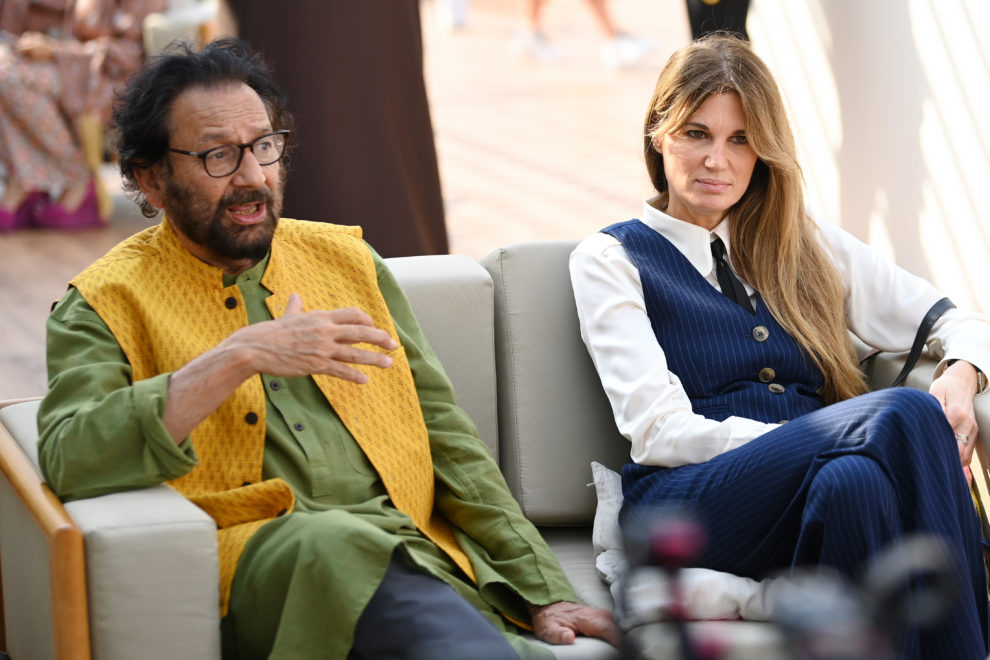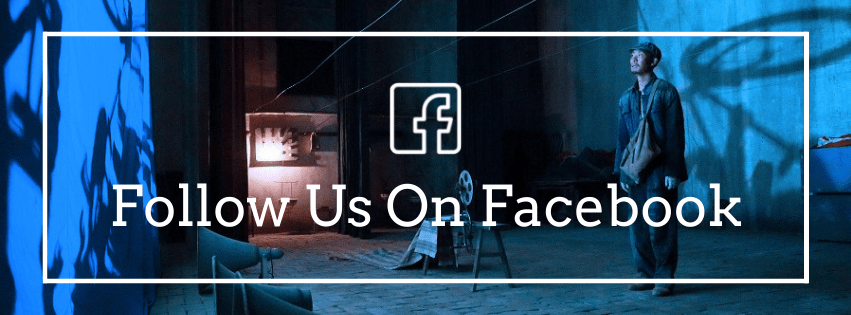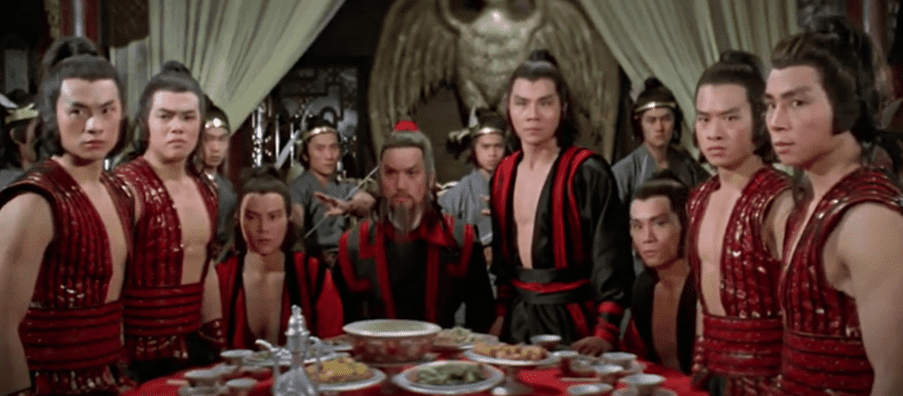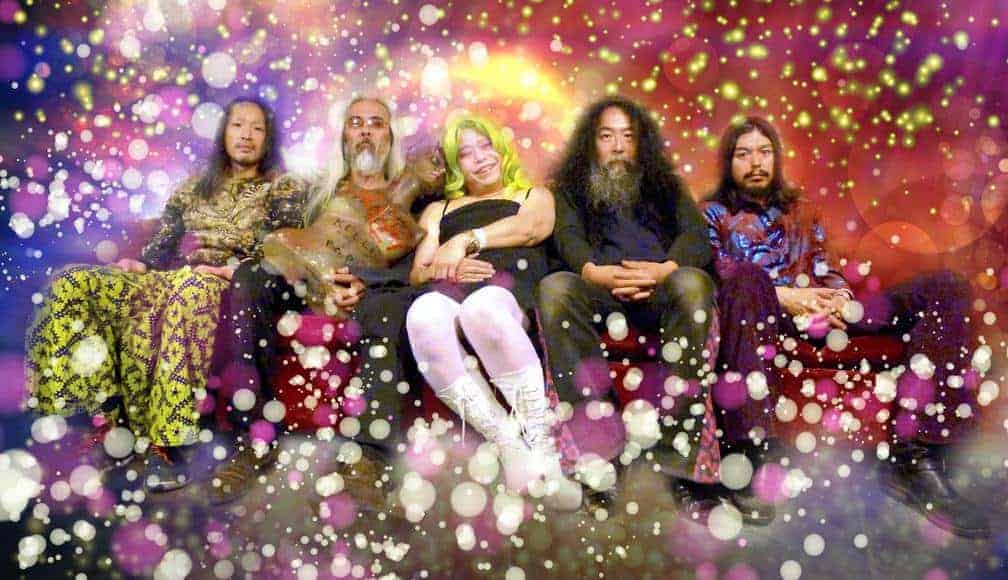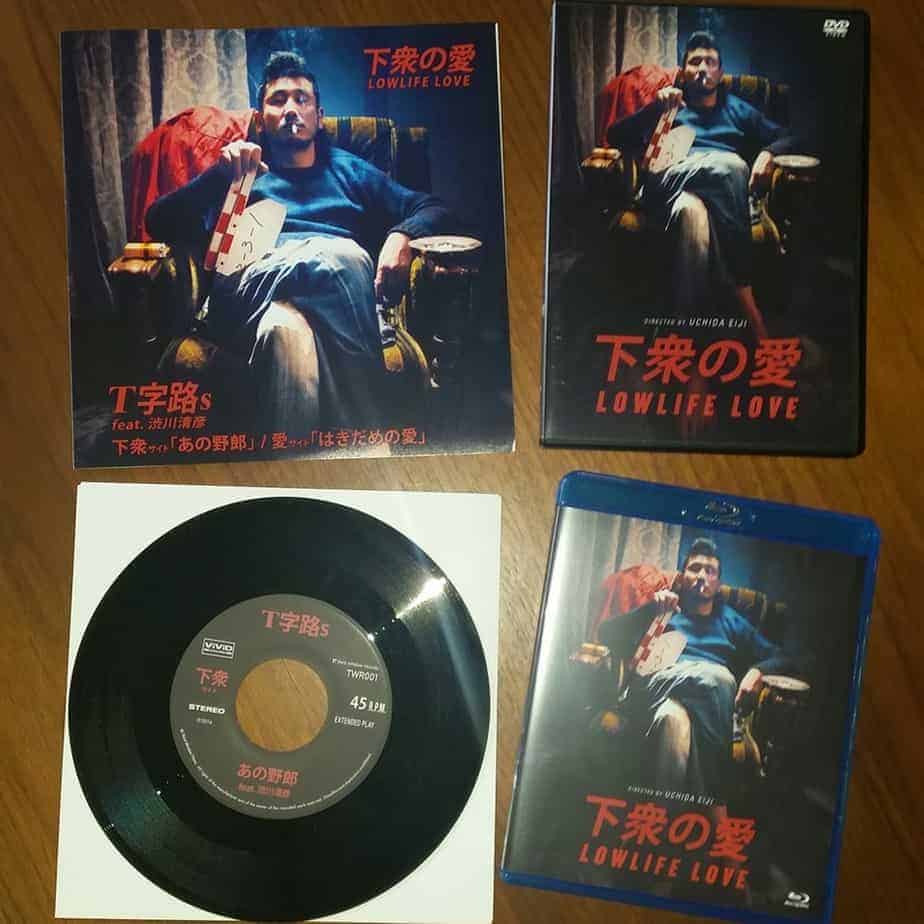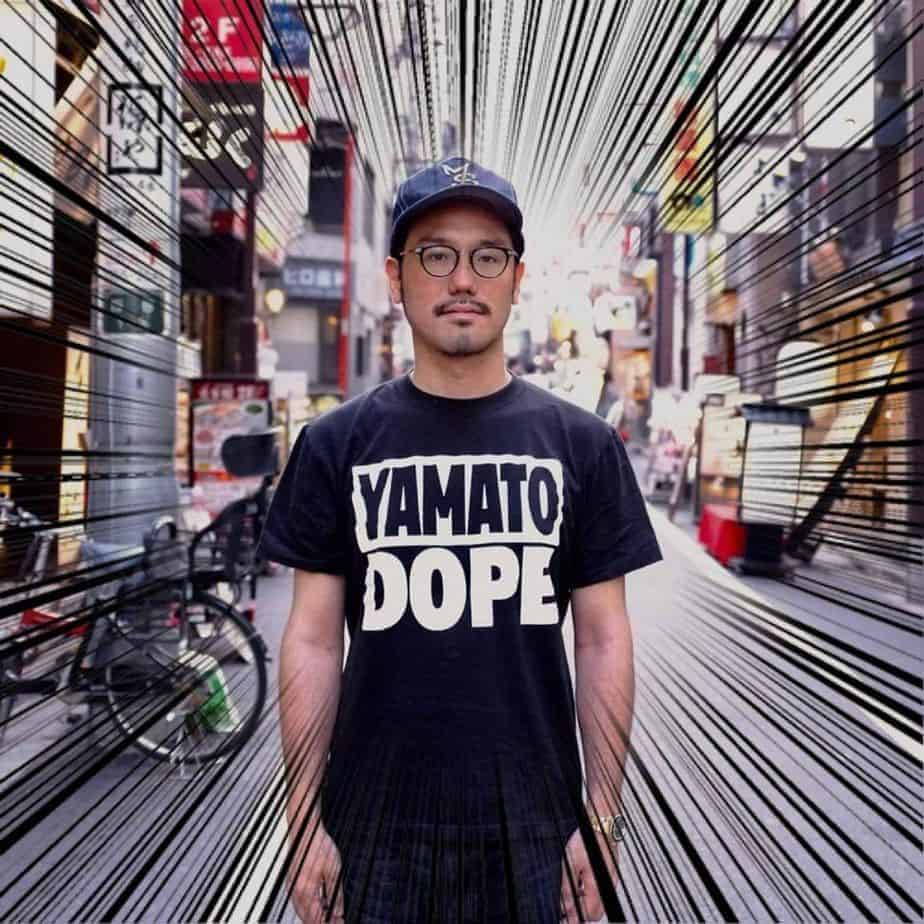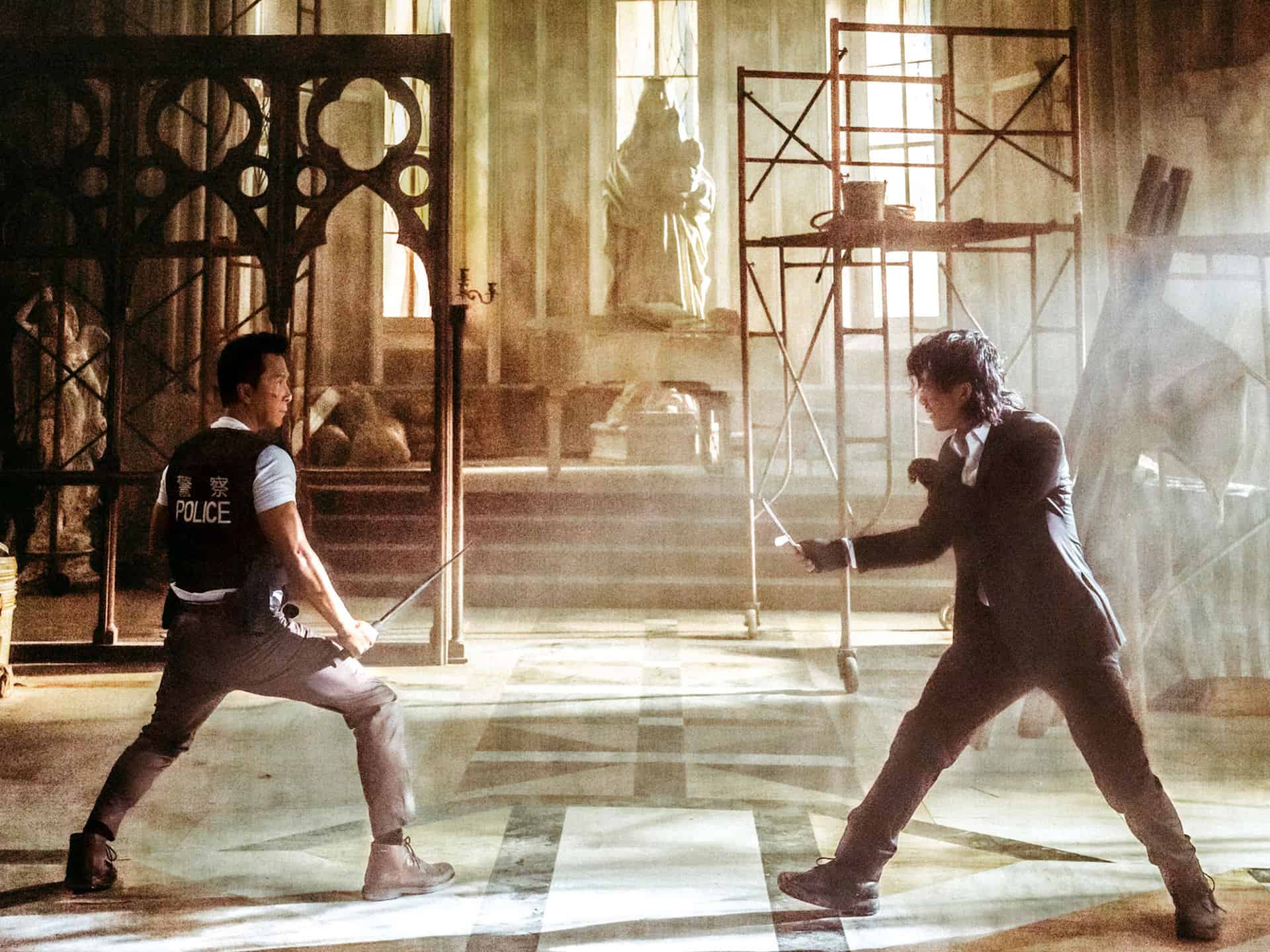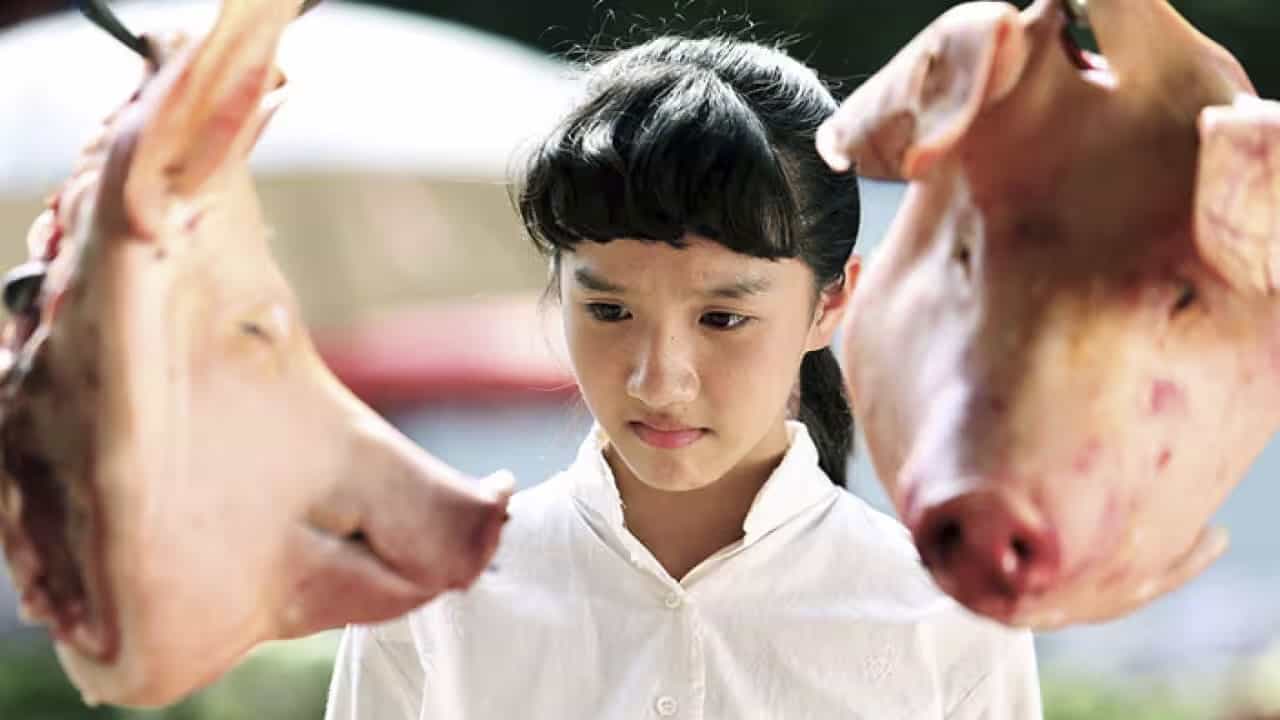In a roundtable with four other journalists from India and Pakistan, we talked with director Shekhar Kapur and script-writer Jemima Khan, actress Sajal Ali, actor Jeff Mirza and actress Shabana Azmi (three different groups in this order) about “What's Love Got to Do With It?”, on the occasion of the film opening the Red Sea International Film Festival.
What's Love Got to Do With It? screened at Red Sea International Film Festival
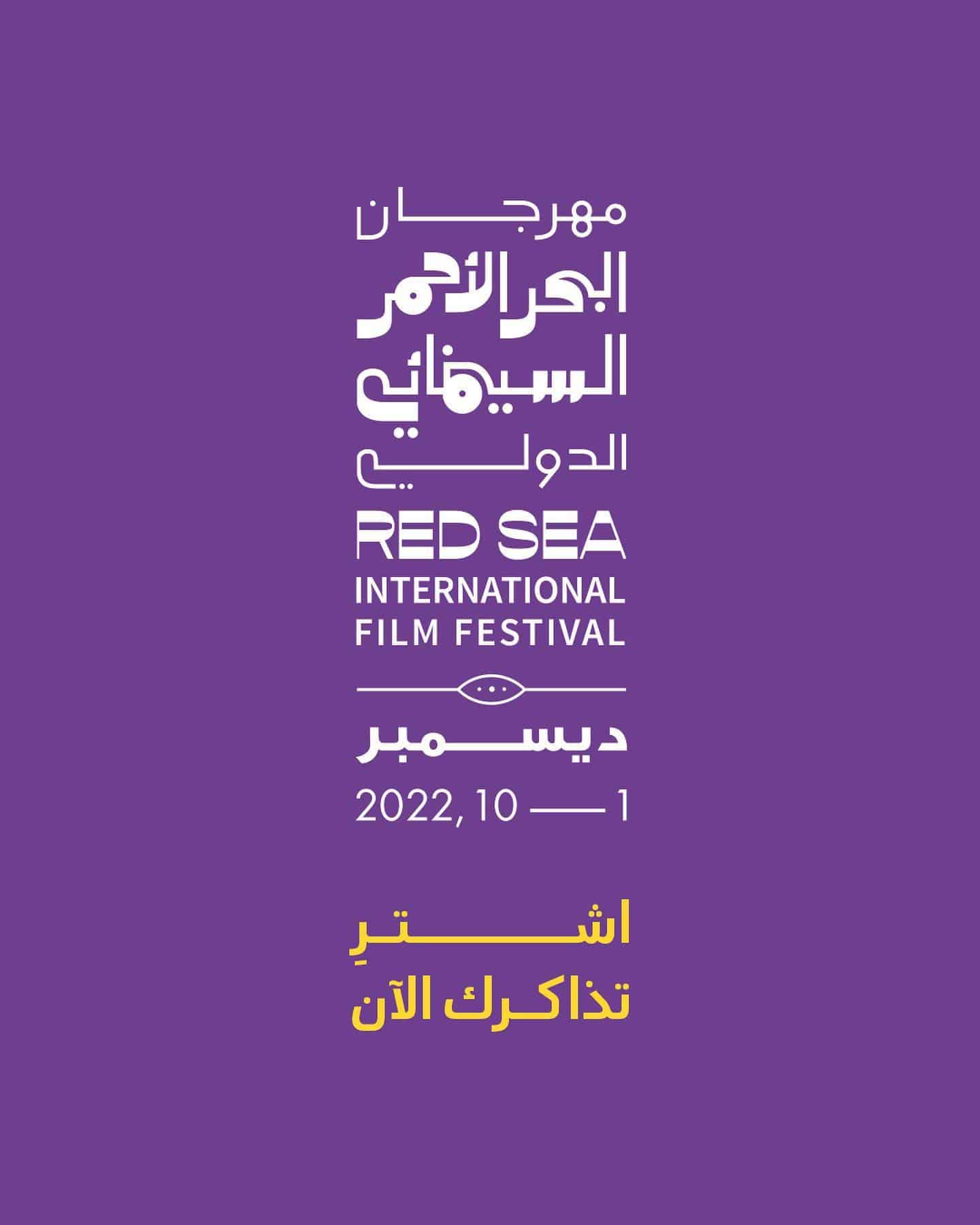
Can you tell us about this project and why you chose to direct it?
Shekhar Kapur: Because the script was wonderful. I read the script and I remember calling my lawyer and telling him that he has to make this deal. It is becoming really hard to make films these days, you either make a Marvel film or something commercial. If you want to make something real, it is difficult to do so. When I read the script, I knew it was a film that was going to be made. I just called my lawyer and said we should do this. I was thinking that we are at the peak of Covid, and we are all going to die, so we might as well die making a movie (laughter).
Why is it hard even for a director of your standards to make the movies you want?
Kapur: It is becoming harder to raise money to do what you want to do. It is easy to raise money for what everyone else wants to do. However, I think we are all carrying responsibilities, we are not given talent to spend it away, if you believe you have a talent, you have been given a gift and gifts are given for a purpose, that purpose has to be resolved and used.
How much of the film is based from your own experience of Pakistani weddings
Jemima Khan: I lived in Pakistan for ten years, between 20 and 30, and I would say that every single character and anecdote comes from either someone I met or an experience that I had one way or another. But again, it is not autobiographical because Zoe, the lead, is in her 30s and I went to Pakistan when I was 21 and had children very young. However, pretty much every line is taken from real life.
How much of you is there in the film?
Khan: The answer to that is a little bit of me, but there is also a little bit of me in Shazad's character. I did not realize that as a writer, you end up relating to the male characters as well. Because I was definitely divided between a sense of duty towards my parents as well as looking for a career and the excitement that Zoe looks of in the film. So, I definitely feel that I can relate to a lot of the characters in the film.
In this world of dating apps, assisted marriages and more than 50% of marriages ending up in divorces, is there still space for love?
Kapur: I think that the fundamental yearning is love, the fundamental mystery is love, the fundamental need is intimacy. Of course there is excitement and adventure but there is also the search to find intimacy, to find that which I was told by my mother as a little child; will I die without ever knowing love? Is that the way to find love, no it is a mystery, love is always a mystery. The day it stops being a mystery it will not exist anymore. The journey is that and that and that and the choice is yours, just as the film states in the end, do not reject any system, the choice is yours
Khan: I think it is also about the kind of love. What kind of love is someone searching for and is ready for. There are different types, there is the hot-headed passionate love based on chemistry and then there is a more pragmatic walking into love which is talked about in the film, the simmer-than-boil love, which is found more upon shared values and growing together. And then there is spiritual love. I do think that in the absence of religion in the Western world, this deified love has become a great search, the search for meaning through love. I think that is kind of the point of the film, what kind of love are you looking for and what is the one that will take you on the happy end long term.
What do you think about cinema changing lately, towards a more commercial path?
Kapur: If you spend ten times more marketing the film than making the film, then you can sell anything. But if you want the film to actually reach out to audiences, it will not if there is no emotion core. We are emotional human beings, we yearn for love, for understanding who we are as finite human beings in the infinite space. That is the very fundamental of art, who are we in the infinite idea of spirituality and that is what drives stories, drives art, drives films. And it is just an emotion and emotion is something that can never be completed, because if it is completed, it is dead. An emotion is some kind of yearning, some kind of need. If there is no such fundamental core to a film as a yearning, there is no way the film is going to work.
From the beginning of your career, your movies showcased that you had thought ahead of your times. How did you manage that?
Kapur: Because I don't like living in reality. (laughter)
You have been living in Pakistan for so long, as you mentioned. Why did it take you so long to write a script about your experiences?
Kapur: I can answer that. She was in search of the right director (laughter)
Khan: I remember always hearing the lament of my friends in Pakistan, that all these movies in the West that win awards showing Pakistan in a bad light, made me wish to make a joyous, colorful film about Pakistan. Sheikh does not like calling it a rom-com but I think it is a positive uplifting colorful film that hopefully brings people together due to its multiculturalism and color and joy and I hope it will have universal themes even though it is obviously inspired by my personal experiences in Pakistan.
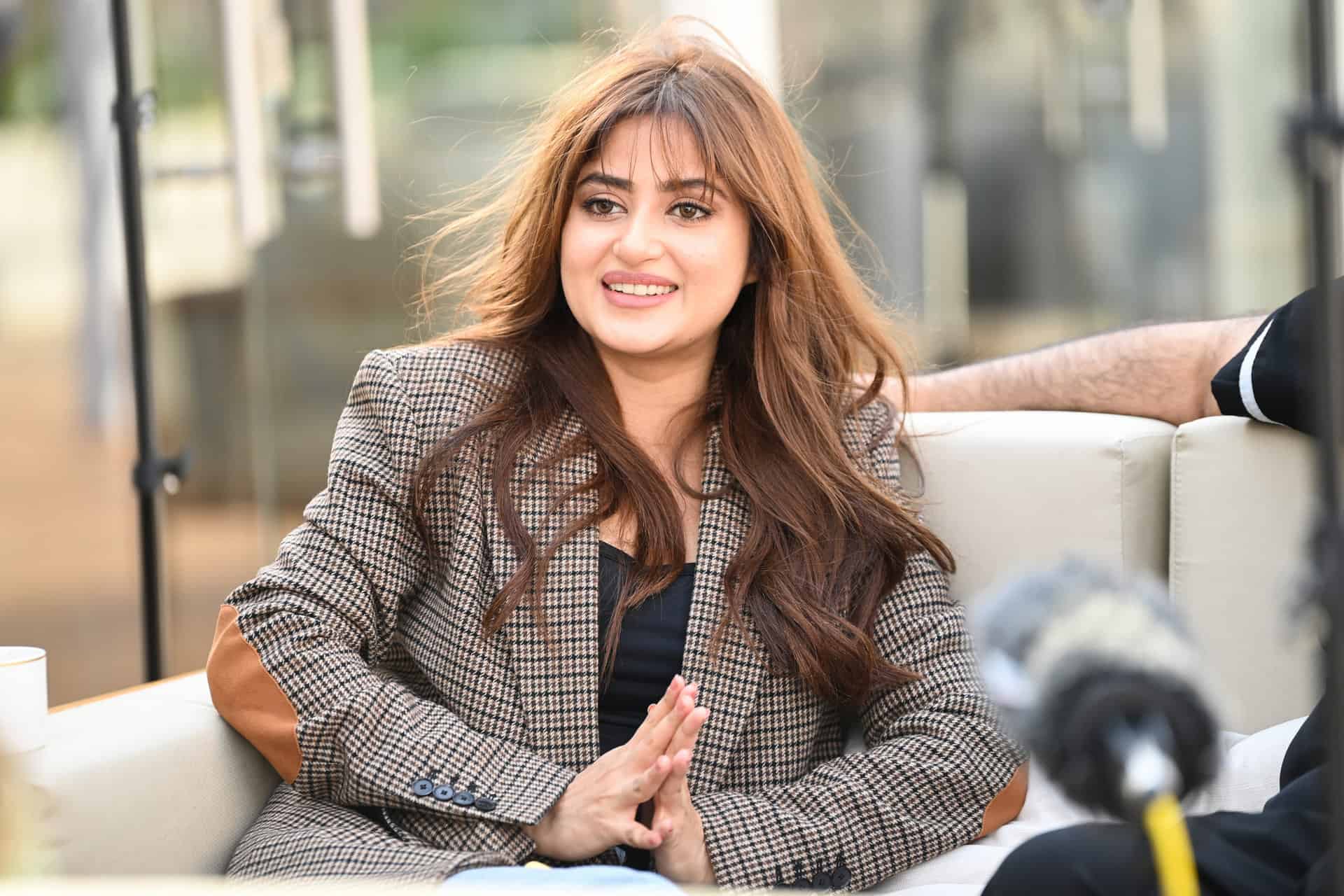
How was your experience working with an international cast, in an international production?
Sajal Ali: I was very nervous, this was the first time cooperating with English actors, and also, I used to watch Bollywood and Hollywood movies, and suddenly |I found myself working with such legends, Emma Thompson, Shabana Azmi and Shekhar Kapur. For me, it was like a dream. But the director made things very easy for me, he is someone who will not give you long descriptions, he would just tell you what he wants you to do. That was the best part, the way he would direct you, would not make you feel embarrassed in front of so many people. Shekhar Kapur and Shebana really helped me, I just felt that I belonged
Your character seems conservative but there is also a crazy fun side to her. Did you enjoy playing both aspects?
I think that vagueness is in me. I remember one scene where I had to dance, and I asked Shekhar, what do you want me to do? Because at the time she is just drunk and is just dancing, taking out all her anxiousness and sadness. And he said, as wild as you can do. It was a surprise for me as well.
How close to the real life of women in Lahore is what portrayed in the film?
In the society we live in, when a girl is twenty, people are like, now she has done her masters, it is time to get married. But I believe that things are changing though, but still, there are a lot of families that would think like that. I think that we should not make marriage our life. And now, I see girls who do not make it their life, and I think it is a beautiful thing, it is not like some other women, who essentially stop living after getting married.
Is it annoying not playing the girl that gets the guy at the end?
Yes, because in the end I also like the guy (laughter). It was very difficult for me to just be his friend now. I am just kidding, but I think I should have gotten a second chance (laughter)
What was the feedback you received about your performance, particularly from Arab people?
I was being appreciated, just the fact that the girl in the end decided to be herself, and not being anyone just to get married, I think it appealed to people
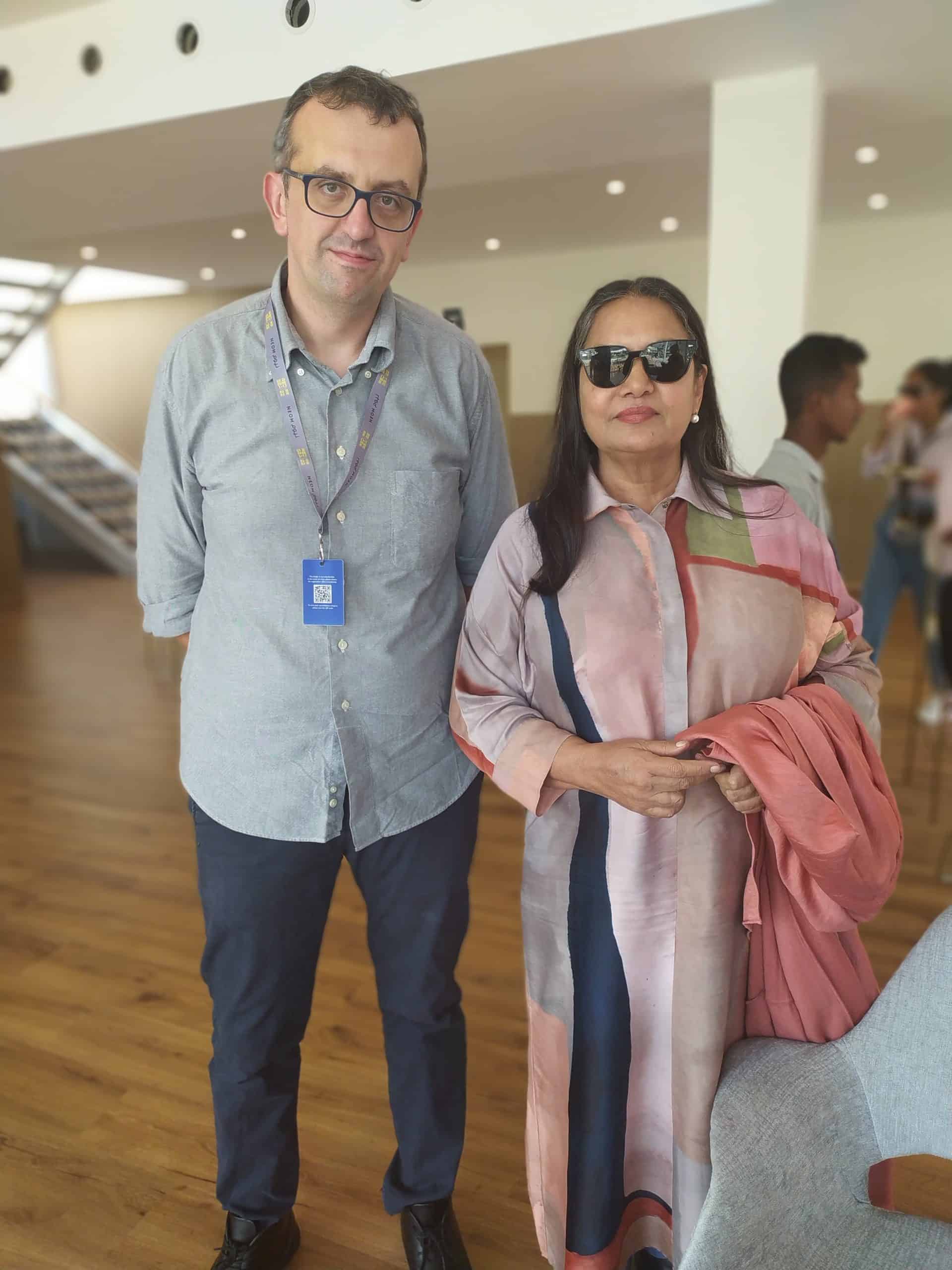
When do you think you managed to embrace your age regarding the roles you play?
Shabana Azmi: Learning to embrace your age rather than fighting it and then playing according to that was very hard for me. It is a fortunate time, however, because the movies are opening up to older people, and particularly women, which was unimaginable ten years ago. But now, if you look at the diversity of the roles I am taking, and working with Steven Spieleberg or Emma Thompson, you realize that it is a good time…
How has your cooperation with Sheikh Kapoor has changed through the years?
Azmi: Although we stayed in touch with each other, it was very easy for me to come back to this film, because Sheikh has always been very gentle with his actors, he loves his actors and he has retained that through the years. And somehow, we immediately connected in a way that I felt that we were on the same side. He doesn't tell his actors what to do, but he creates a space that he allows you to give your best. Do you agree with this Jeff?
Jeff Mirza: Sheikhar is somebody who is definitely a great pleasure working with him and he is not of those directors that gets “in your face”. He allows the actor to come out, although he obviously has a vision he wants to follow. There is wiggle room in this vision of his, though, and he does both in a gentle way.
You previously worked with Shirley McLane, and now with Emma Thompson. What are the changes you have witnessed from one production to the other?
Azmi: In “Madame Sousatzka”, when I worked with Shirley Mclane, I was the only Asian on the set. I felt a bit alien, because everything else was British. Today, it is becoming so international that on the same set you can see black, white, Chinese, Indian, whatever kind of race. It is changing completely, the cinematic universe is becoming truly international. And also, there are more women now. What was happening earlier is that the international technicians would increase in number, but Asian actors would only be in international movies under very specific colors. That is changing now, and even women's roles are changing.
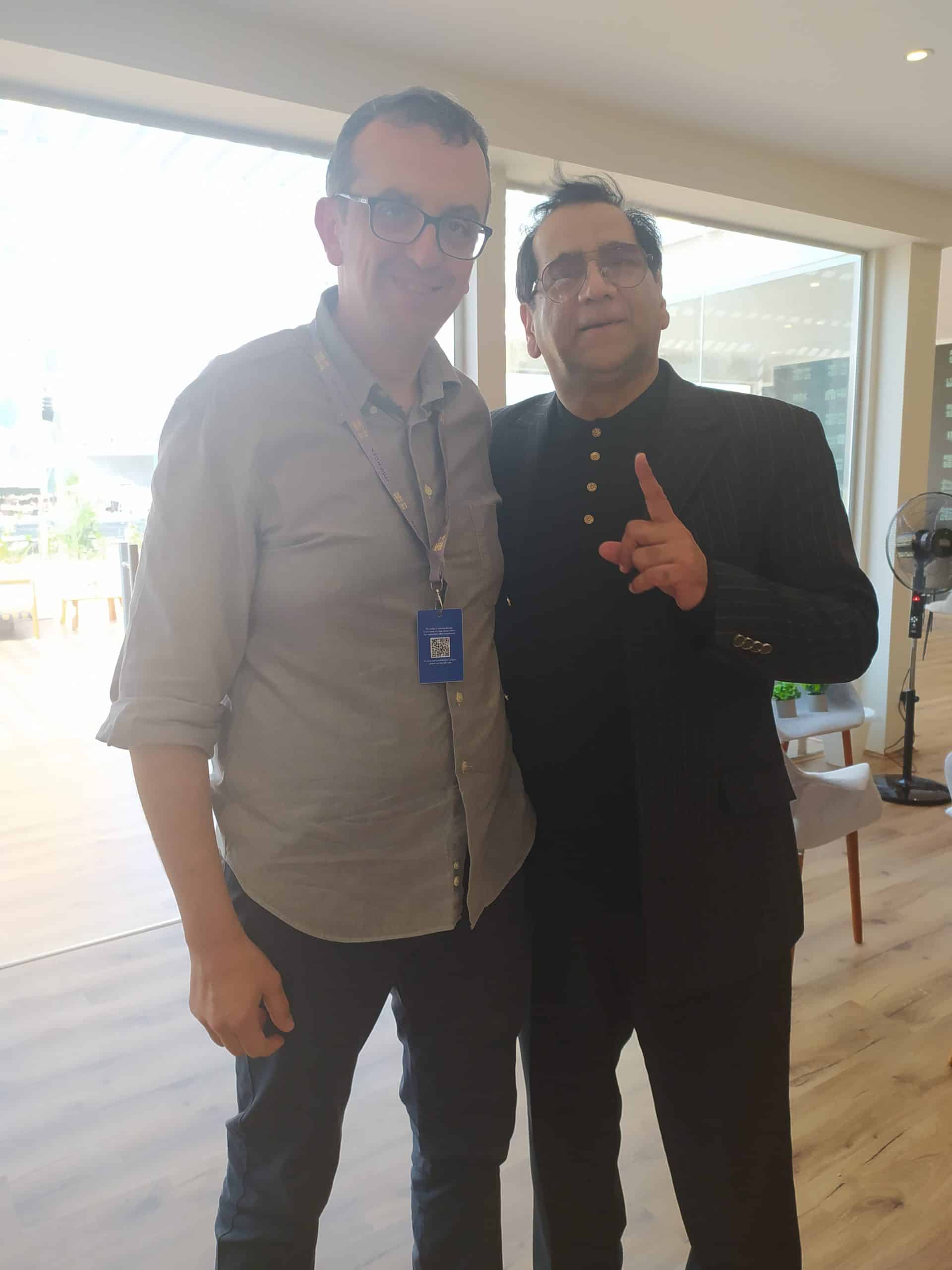
What is your opinion on assisted marriage, nowadays?
Mirza: My mother, at a certain point, who is actually in the movie, would show me pictures in order to find someone to marry, and the more I said no, the pictures became racier, more sex appeal in them (laughter). So I went completely the other way, and that did not work out, and then I came back home. I even had a joke for the whole situation: “My parents wanted me to marry my cousin but I didn't want him. So many cousin marriages are taking place in my own family, that I am actually my own uncle”.
Azmi: I come from a very progressive family, so for me, this idea was completely alien. But I have realized that there are instances of assisted marriage working very well. And if you look at it in a certain microcosm, it is essentially the same with Tinder. You are meeting people you have not known before. The world is changing though, also in another way. A lot of girls now are resisting the idea of marriage, a fact that is based on the fact that there has been a shift in the relationships of the two sexes: women are much more confident and know what their rights are, and they are demanding them, so the males have to change (laughter). No marriage is the future. I feel women should live together and men should visit them, it is the best solution (laughter)
What was the most fascinating thing for you about this script?
Azmi: The whole package deal, the lovely script, Sheikhar Kapoor, Emma Thompson, of which I have been a huge admirer, Lily James, Jeff. Also, in today's world, when it is becoming so divisive and everything is full of stray, along comes a film that celebrates love and basically says, “let's not sit in judgment of each other's cultures”, we are different but we are equal. I think celebrating difference is very important
Mirza: And it is also not a savior movie, the Westerner does not come to save the world. No one is saving anyone


